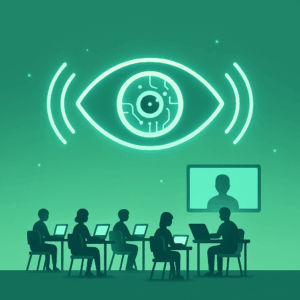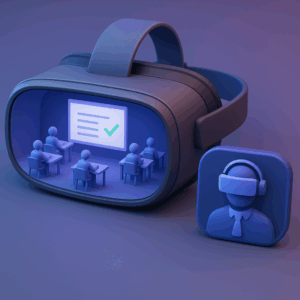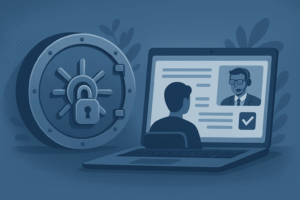The popularity of online learning dramatically increased during the era of the pandemic. Initially, most people found the transition positive, but a few challenges surfaced. Especially the way parents were struggling to cope with the change. Various issues emerged as soon as students, specifically when the younger ones joined online learning platforms globally. Though the entire mechanism helped the students keep up with their learning, it also had shortcomings.
Many discussions happen around the challenges students and teachers face during online classes. However, problems encountered during online learning for parents often go unnoticed. Let’s see what the problems faced by parents during online classes are:

Technical difficulties:
Technological issues such as internet connectivity, device compatibility, and software malfunctions disrupt online learning. Under such circumstances, the parents feel helpless as the whole routine and structure of the child’s day-to-day education go for a toss. Even so, such technical difficulties are out of most stakeholders’ control in the online learning process. Neither the parents nor the institutions can intervene and improve the situation; it persists more often than usual.
Lack of structure:
Online learning may need more structure and routine than a traditional classroom, making it easier for some parents to manage their child’s schedule and learning. Most students need more discipline and maturity to follow a productive structure independently. If the classes are happening virtually, it is likely to occur that parents have to keep an eye on their routine constantly. This becomes a tiring job that should take place daily for a long time.
Limited interaction:

Online learning can be isolating for students and parents, with little social interaction and collaboration opportunities. Social interaction in school and college is a learning experience to develop most students’ social and life skills. This environment teaches the invaluable lessons of working in teams and helps in creating a collaborative approach. Such learning allows students to be good team players once they venture into real-life scenarios. Replicating such an environment isn’t possible for parents; teaching such skills theoretically is an effective method. Hence most parents aren’t happy with online distance learning.
Overseeing their child's learning:
Parents may struggle with overseeing their child’s learning and ensuring they stay on task and engaged in the material. This is a challenging task in schools and colleges, and students face factors like peer pressure and pressure from teachers to stay on track with learning continuously. At home in virtual classrooms, this responsibility falls on the single shoulders of parents, and most kids outgrow the authority of their parents pretty soon. Hence, demanding focused attention from the child towards academics becomes a challenging situation for parents.
Balancing work and child care:
With the increase in remote work due to the pandemic, many parents struggle to balance their responsibilities with the demands of online distance learning and child care. Many parents already have set career-related responsibilities. Schools or colleges play a significant role in managing the academic side of students. In a situation when the student is studying from home using online learning platforms may need more than usual attention from the parents. In such circumstances, parents struggle to juggle their work and their child’s academics.
Adapting to new technology:
Some parents may need to be more familiar with the online tool for learning, which can be a barrier to their child’s success. We must understand that parents and children are from different generations. Technology has evolved in leaps and bounds in the last few decades. While most parents are learning the latest technology, some may find it difficult to cope. For parents who find it challenging to use various technological tools seamlessly, it increases Online learning challenges for parents to be involved in their child’s learning process independently and effectively.
Assessment and evaluation:
Distance learning can also pose challenges for assessment and evaluation, making it difficult for parents to track their child’s progress and understand their strengths and weaknesses. Also, parents need help to digest that the evaluation process happening remotely is fair and efficient. Hence, most feel that the grades do not accurately reflect their child’s knowledge and understanding.
Out of all the above challenges, this problem may get a solution by a proactive approach by institutions and schools for distance learning courses. They must collaborate with technologically advanced online proctoring software like proctortrack to safeguard the integrity of their exams. This step can give some satisfaction to the parents. It ensures that the evaluation process is fair and safe from any undue influence of cheating incidences. It works well in two ways. First, parents get an accurate idea of their child’s academic performance. Secondly, it gives an assurance that in the competitive world, other students’ evaluation is also fair, and their child is not getting any disadvantage.
Summing Up: Online Learning and Parents
Distance learning through virtual classes has been a great enabler in delivering education. It was easier for most students and teachers to cope with the change online virtual classes brought. However, no matter how well virtual learning happens, online learning for parents is more challenging. Also, Parents’ role in online learning is to choose an online course or institution which uses intelligent online proctoring software like Proctortrack. This is because exam assessment using online proctoring is more likely to be fair and accurate. It gives a fair chance to all the students to exhibit their knowledge and understanding of the subjects. Also, it gives parents an idea of their child’s academic progress.











